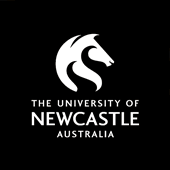Harper, John (1802 - 1862)
Born: England (Chelsea?)
Schoolmaster and `assistant missionary' of the Wesleyan Missionary Society, Wellington Valley (1824-1826), and Two Fold Bay and Bateman's Bay (1827-8).
Career Highlights
John Harper's background is unclear, though his descendants understand that he was born in Chelsea c1802, the son of an army captain, and had served in the Royal Navy as a midshipman at St Helena before emigrating to NSW on the Castle Forbes in 1822. These details are yet to be verified. In June 1823, he was appointed to assist George and Martha Clarke at the new Native Institution at Blacktown, and remained teaching at the institution after the Clarkes left for New Zealand in early 1824.
In October 1824, shortly after Reverend William Walker took over the Institution, Haper was sent by Walker to Wellington Valley to assess the possibilty of establishing a Wesleyan mission. When he returned five months later, his optimistic and rather extraordinary reports persuaded Reverend George Erskine and the NSW WMS to proceed with Walker's plan. In April 1825, they received Harper as an assistant missionary (following the expulsion of Walker from the Society), considering him a "persevering individual, who … seems designed for the Herculean task of imparting mental culture to the perishing blacks". Harper returned to Wellington Valley the following month and resided on the government settlement for around a year. Accounts of his progress in the Sydney press (including extracts from his journal) attracted intense criticism, most notably from the botanist, Allan Cunningham, causing the Attorney General to investigate whether Harper had "presented an exaggerated picture of his proceedings at Wellington Valley", mostly with respect to his claims to have mastered the local Aboriginal dialect. Harper returned to Parramatta to confront a special meeting of the brethren on 6 June 1826. He was cleared of any charge of "willfull exaggeration", appeasing the Attorney General, though on Harper's advice the Society then resolved to abandon Wellington Valley and look for "a more eligible station" on the coast. A few months later Harper was sent to reconnoitre the south coast at Two Fold Bay, though the WMS auxillary was reluctant to allow him sole charge of a mission, and the undertaking was shelved when the British government withdrew its offer of a land grant for Society.
On returning to Sydney, Harper was married, on 31 January 1827, to Charlotte Stiles, in St. Philip's Church by Reverend Cowper. Later that year, he was the subject of a dispute between the WMS in London, which spoke of him in "dubious terms" and wanted him removed from the Society, and the NSW auxiliary which maintained the right to select and employ local preachers. Harper was sent to work the Windsor Circuit with Reverend Erskine, based at Richmond, where he was to "combine useful exertion amongst the settlers with some attention to the blacks", but he resigned the post in mid 1828 when hopes for a Wesleyan mission settlement appeared to have finnally evaporated.
Harper is thought to worked thereafter in Sydney, though his movements are difficult to trace until September 1838, when was examined during a NSW Legislative Council inquiry on the Aborigines Question. He died on the 11th April 1862 and was buried in Camperdown Cemetery, survived by his wife Charlotte (died in Redfern, 1870) and by 10 of his 15 children.
A Journal kept by Harper at Wellignton Valley does not appear to have survived, though a number of extracts (mostly for the period June to December 1825) were published in the Sydney Gazette in February 1826. Extracts were also forwarded to the WMS in London by Reverend William Horton (these were located and transcribed by James Bonwick, c1890s). Harper's work at Wellington Valley was apparently of little interest to those who established the Anglican mission there several years later. In one desultory reference, Reverend Watson, shortly after arriving at Wellington Valley, noted one individual, `Wesley', who identified himself as a former pupil of Harper. Wesley appeared "to be as ignorant of God and Divine things as the rest of his brethren".
Note: The editors are indebted to Ron Harper, a retired Civil Engineer and ex-businessman who is John Harper's great-great grandson, and Ted Freeman, whose wife is Harper's g-g grandaughter, for discussions on the character and career of John Harper.

